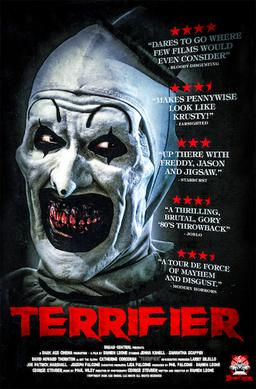The Wicker Man (2006) review
- Jeremy Kelly
- Oct 24, 2023
- 4 min read
24. The Wicker Man (2006)
Directed by: Neil LaBute
Produced by: Nicolas Cage, Boaz Davidson, Randall Emmett, Norm Golightly, Avi Lerner, John Thompson
Screenplay by: Neil LaBute
Starring: Nicolas Cage, Ellen Burstyn, Kate Beahan, Frances Conroy, Molly Parker, Leelee Sobieski, Diane Delano

The 1973 thriller “The Wicker Man” is one of the more underrated genre films of the decade; its performances, crafty aesthetics and offbeat atmosphere help make it really stand out. Well, the 2006 remake starring Nicolas Cage certainly stands out, but for entirely different reasons. Directed and written by Neil LaBute—whose works mostly focus on colloquial conversations about how awful people can be—this movie relocates the island of Summersisle from Scotland to the Pacific Northwest, where policeman Edward Malus (Cage) is summoned by his ex-fiancée Willow (Kate Beahan) after her daughter Rowan (Erika Shaye Gair) has disappeared. It’s become infamous as one of Cage’s most entertainingly bad movies, with the climax being the subject of countless internet memes. Personally, I find the first two thirds more silly and annoying than anything; but when that third act comes around, it delivers on the insanity, showcasing a myriad of bizarre visuals and nonsensical plot points.
The story begins with Edward struggling to cope after a recent accident involving a station wagon he’d pulled over getting hit by a truck, causing the mother (Emily Holmes) and daughter (Zemphira Gosling) passengers to burn to death in a fire. Out of the blue, he gets a letter from Willow, who’s returned to her Summersile home; she tells him Rowan is missing and she wants him to help look for her. Edward travels from the mainland to the island, finding a neo-pagan, matriarchal society led by Sister Summersisle (Ellen Burstyn), where production of honey is the backbone of their economy, now struggling. The residents are vague and unhelpful in his search for Rowan, as he starts to suspect a mass coverup involving a sacrificial ritual.

So obviously, the biggest difference in the remake’s storyline is that the island’s habitants are mostly women; what few men there are do mostly grunt work and generally don’t speak. Their full roles are somewhat mysterious, and there’s even a moment where schoolteacher Sister Rose (Molly Parker) teaches the students that man’s purest form is “phallic symbol.” It’s such a peculiar choice, especially given just how flagrantly they flout Edward’s principles, even when it’s a matter of life and death; it’s like LaBute is trying to show what happens when you let women run the show. If this movie came out today, far-right conservatives would probably call it an “anti-woke” masterpiece.
But at the same time, the film’s too stupid and absurd to really offend anyone, especially since Edward is so terrible at being a detective, it’s more indictive of his blustering obnoxiousness than the Sisters’ empowerment. Cage’s performance shifts between being overly shouty and meekly confused; everyone on this island acts suspicious and awkward—Willow included—yet it takes forever for him to start asking serious questions. A large chunk of his searching doesn’t amount to anything, so the movie trudges along at an irritatingly slow pace, only picking up at moments where he runs away from bees; hey, this is our second bee-related movie of the month. There’s also a really weird moment where Edward meets Sister Thorn (Parker), who’s identical to Sister Rose; he asks if they’re the same person, she denies it, and they never mention it again. Why include an exchange like that?

I will say that the movie is actually pretty good at conveying Edward’s sense of mounting paranoia and frustration, but as it goes on, it gradually gives way to much more goofy and off-the-wall antics. The funny thing is that the screenplay is supposedly very similar to the original, but the tone is so butchered and inconsistent, I can’t get a feel for how we’re supposed to view what’s going on. This whole recurring theme of Edward seeing the little girl hit by the truck is unbelievably hokey; the way the image keeps juxtaposing is so jarring, it becomes hilarious. And once it’s revealed what’s actually happening, presented as this big show of fate versus free will, it only raises more questions about how pointlessly elaborate one can scheme the demise of someone they’ve never met, the clumsiness of a fight between Cage and Leelee Sobieski as Sister Honey, and why the great Ellen Burstyn agreed to get her face painted Duke blue and white for this.
Like I said, the original “The Wicker Man” also had an eccentric style, but it was still provocative and intelligent; this is just overblown garbage, the kind bound to provoke sessions of laughter. I know Cage has made recent claims that it was meant to be a comedy, and I guess when you have a scene where you put your main character in a bear suit and have him punch a woman in the face, there must have been some thought put into the sheer audacity of these events. But I don’t know; even as far as unconventional comedies go, this still feels especially egregious. Robin Hardy and Christopher Lee—the respective director and star of the original—both heavily criticized the movie, while currently in development of their own follow-up, which came to fruition with “The Wicker Tree” in 2011. Overall, you probably won’t regret checking this out; it might take a while to get there, but when it takes that hard left, it’s quite memorable in how it does it.
My rating: 5/10





Comments